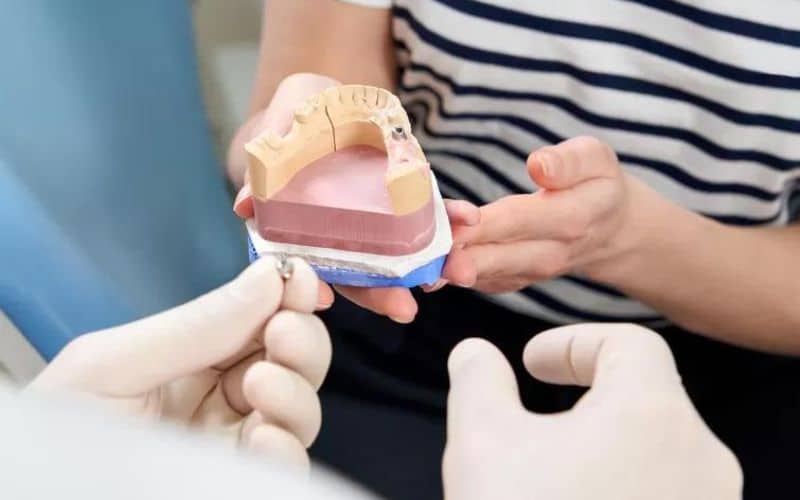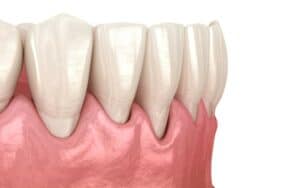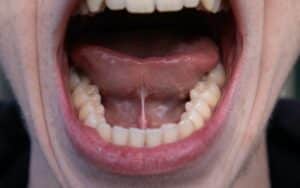While dental bridges and dentures used to be the only options for those who lost teeth, dental implants, which are now available, offer an excellent alternative. Dental implants last longer, are more comfortable, and provide a more natural looking tooth replacement.
Table of Contents
ToggleWhat Is a Dental Implant?
Dental implants, such as Dental Implants Hamilton are longer lasting than other tooth replacement options and are much more natural looking. The implant itself replaces the root or roots of missing teeth. They are an excellent option for those who have enough bone density and quantity of bone to support the implant.
Three Components
A dental implant is actually three parts working together.
The first part is a titanium implant, which is the actual implant part. This post is secured into the bone, where the original tooth’s roots used to be, during an implant surgery. It provides a secure base for the tooth replacement to attach on to.
An abutment screws into this base and allows the dental crown to attach on. It rests just above the gum line.
The dental crown is the part that shows afterwards and looks like a natural tooth. They are made from porcelain, ceramic, and resin. There are also metal varieties, and versions where porcelain is fused to metal, for the strength of metal but look of porcelain.

Advantages of Dental Implants
Dental implants have better success compared to dentures while preserving the structure of the jawbone and face and allowing bone to continue to grow. A dental implant acts like a natural tooth, so is more comfortable, and does not add stress to the other teeth. They are long-lasting, function well, and can handle chewing better.
Dental Implant Failure
Dental implant surgery has a high success rate of 95%, and is low risk. Dental implant failure is any situation that requires an implant to be removed.
Dental implants fail if there is an infection post surgery around the implant, causing inflammation in the surrounding tissue, or if nerve damage occurs. They can also occasionally fail if the bone does not fuse with the implant. Sudden sinus issues can indicate an implant needs to be removed. Dental implant failure also occurs if it shifts position, loosens, falls out, or breaks.
Factors Impacting the Lifespan of your Dental Implants
After successful implantation, some factors will affect how long dental implants last.
The quality of the implant, implant placement and dentist skill are factors, as well as certain health factors, but there are many things more directly under your control that affect the long-term success of your implant, such as good oral hygiene.
Physical Wear Factors
Excessive Chewing and Grinding
Excessive chewing, using your teeth as tools, and grinding your teeth, especially if you grind your teeth in your sleep adds wear and tear to implants, just as they do to regular teeth.
This is why implants replacing molars or incisors, may need replacing more frequently, as they have heavier use.
Trauma
Trauma to a tooth, which can happen during some sports, can also damage the dental crown.
Fortunately, the titanium post is usually unharmed in cases of physical wear, so only the crown is likely to need replacing.
Oral and Overall Health Factors
Lifestyle choices
Higher alcohol consumption and smoking negatively affects oral health and increases wear on crowns. These also weaken the immune system, making you more susceptible to bacterial spread and infection, resulting in dental problems, including gum disease.
Diets high in sugar and refined carbohydrates can lead to higher plaque buildup, which can harm your implant. You obviously won’t get a cavity, but this can lead to gingivitis; brushing and flossing are also critical to prevent plaque buildup.
Medical Conditions
People with certain conditions that lead to chronic inflammation will have a higher risk for implant instability and failure.
Gum Disease
Peri-implantitis is a type of gum disease that affects the gum tissue around an implant, causing inflammation. It causes bone loss, implant instability and movement, leading to the implant failing.
Bone Density and Bone Quantity
The bone surrounding implants, which the implants fuse to, need to be strong enough, and there needs to be enough of it. Those who suffer from bone loss may not be good candidates for implants, and if it happens after an implant, it can cause it to fail.
Average Lifespan That Dental Implants Last
Implants weren’t used until the 1980s, so there is limited longevity data, and it is hard to clearly determine how long dental implants do last. Since then, they have also been enhanced and improved quite a bit, which improves their durability and long term success.
A key point is that the actual dental implant, or titanium rod, lasts longer, with just the dental crown needing replacement. This part lasts better, as it is fused with the bone around it and is not exposed directly to trauma-causing forces. The titanium rod can last 25 years or so, or potentially a lifetime.
Abutments and dental crowns are more vulnerable and need to be replaced more often, usually every 10 to 15 years, depending on the specific implant and material, and other such factors, and whether proper care is taken.
Repair
If you notice discolouration of the crown or surrounding teeth or any wear marks or chips on your crown, this may be a sign it needs to be replaced.
Regular checkups with your dentist also help spot any concerns at the early stages.
Care for an Implant as You Do for Natural Teeth
Always follow dentist recommendations regarding your dental implant surgery.
Also, care for your implant as you would your natural tooth. Maintaining a high level of oral hygiene is important for protecting implants, as well as natural teeth and gums.
Brushing twice daily as a minimum with fluoride toothpaste, and flossing daily to remove trapped bacteria and plaque is recommended for oral and overall health, which helps preserve the longevity of an implant. Your dentist may prescribe or recommend a mouthwash, as well.

Missing Teeth?
Hamilton Mountain Dental can help you restore your smile if you are missing one or more teeth. With our friendly team and ultra-modern equipment, we can help you achieve your dental and oral health goals, without any stress.




